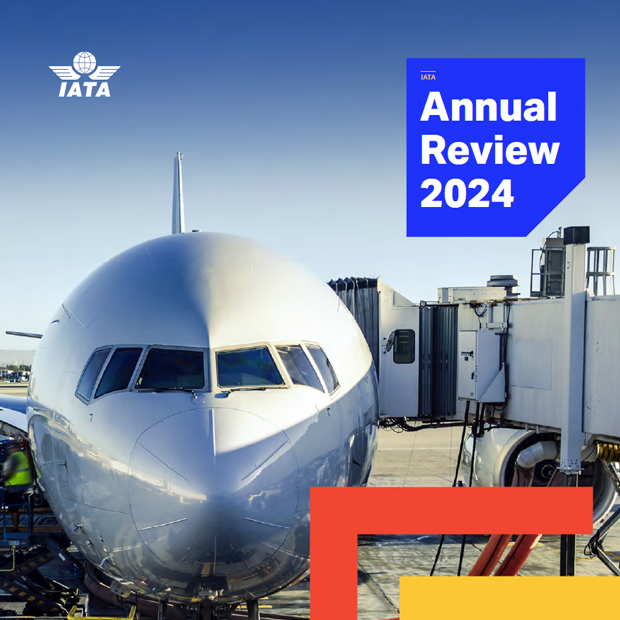
Translations:
Réaction de l’IATA aux récentes restrictions de voyages aux États-Unis (pdf)
国际航协回应美国最新的旅行禁令 (pdf)
Reacción de la IATA a las recientes restricciones de los viajes a EE. UU. (pdf)
IATA reage às recentes restrições de viagem adotadas pelos Estados Unidos (pdf)
"إياتا" يدعو الولايات المتحدة إلى إعادة النظر في القيود الأخيرة التي فرضتها على حركة السفر (pdf)
Geneva – The International Air Transport Association (IATA) and its members continue to support governments in their efforts to contain the spread of COVID-19. At this time of extreme pressure on the industry, IATA urged governments to:
- Prepare for the broad economic consequences of these actions,
- Respond quickly to the financial frailty of airlines, and
- Follow WHO (World Health Organization) recommendations.
These calls come in response to the US government’s banning of non-US citizens, and individuals who are not legal permanent residents of the US, who have been in the Schengen Area in the past 14 days from entry into the United States.
“These are extraordinary times and governments are taking unprecedented measures. Safety—including public health—is always a top priority. Airlines are complying with these requirements. Governments must also recognize that airlines—employing some 2.7 million people—are under extreme financial and operational pressures. They need support,” said Alexandre de Juniac, IATA’s Director General and CEO.
Economic Impact
When taking such measures, IATA urged governments to prepare for the adverse economic impact that they will cause. The dimensions of the US-Europe market are enormous.
In 2019, there was a total of around 200,000 flights scheduled between the United States and the Schengen Area, equivalent to around 550 flights per day. There were around 46 million passengers (roughly equivalent to 125,000 travelers every day).
While the US measure recognizes the need to continue to facilitate trans-Atlantic trade, the economic fallout of this will be broad.
“Governments must impose the measures they consider necessary to contain the virus. And they must be fully prepared to provide support to buffer the economic dislocation that this will cause. In normal times, air transport is a catalyst for economic growth and development. Suspending travel on such a broad scale will create negative consequences across the economy. Governments must recognize this and be ready to support,” said de Juniac.
Airline Financial Viability
Airlines are already struggling with the severe impact that the COVID-19 crisis has had on their business. On 5 March 2020, IATA estimated that the crisis could wipe out some $113 billion of revenue. That scenario did not include such severe measures as the US and other governments (including Israel, Kuwait, and Spain) have since put in place.
The US measures will add to this financial pressure. The total value of the US-Schengen market in 2019 was $20.6 billion. The markets facing the heaviest impact are US-Germany ($4 billion), US-France ($3.5 billion) and US-Italy ($2.9 billion).
“This will create enormous cash-flow pressures for airlines. We have already seen Flybe go under. And this latest blow could push others in the same direction. Airlines will need emergency measures to get through this crisis. Governments should be looking at all possible means to assist the industry through these extreme circumstances. Extending lines of credit, reducing infrastructure costs, lightening the tax burden are all measures that governments will need to explore. Air transport is vital, but without a lifeline from governments we will have a sectoral financial crisis piled on top of the public health emergency,’ said de Juniac.
WHO Recommendations
The World Health Organization (WHO) continues to advise against the application of travel or trade restrictions to countries experiencing outbreaks. On 29 February 2020 the WHO issued revised guidance which included the following:
“Travel measures that significantly interfere with international traffic may only be justified at the beginning of an outbreak, as they may allow countries to gain time, even if only a few days, to rapidly implement effective preparedness measures. Such restrictions must be based on a careful risk assessment, be proportionate to the public health risk, be short in duration, and be reconsidered regularly as the situation evolves.”
“We urge the US and other governments that have placed travel restrictions to follow the WHO guidance. This is fast evolving. Health and safety are the top priorities for governments and the air transport sector. But the effectiveness and necessity of travel restrictions must be continuously reviewed,” said de Juniac.
See the Impact of US Travel Ban infographic (pdf)
For more information, please contact:
Corporate Communications
Tel: +41 22 770 2967
Email: corpcomms@iata.org
Notes for editors:
- IATA (International Air Transport Association) represents some 290 airlines comprising 82% of global air traffic
- You can follow us at https://twitter.com/iata for announcements, policy positions, and other useful industry information
- The countries which comprise the Schengen Area are Austria, Belgium, Czech Republic, Denmark, Estonia, Finland, France, Germany, Greece, Hungary, Iceland, Italy, Latvia, Liechtenstein, Lithuania, Luxembourg, Malta, Netherlands, Norway, Poland, Portugal, Slovakia, Slovenia, Spain, Sweden, and Switzerland
- US to Germany, France and Italy are the largest passenger markets for the US-Schengen Area traffic. There were 7.6 million, 7.6 million and 6.9 million Origin-Destination (O-D) passenger journeys respectively between these markets and the US in 2019
- Of the Schengen Area countries, Iceland has the highest exposure to the US market, with 17.1% of its total O-D air traffic, followed by the Netherlands (6.5%) and France (5.2%)
- The US-UK market (which is exempt from the travel ban) is significant, with 17m passengers in total in 2019 (roughly 47,000 per day, equal to more than one third of the total US-Schengen market)
- Assistance measures governments could consider include temporary flexibility in the application of passenger rights regulations, deferral of tax payments, and government support to encourage reduced costs and charges for airports and ANSP services

